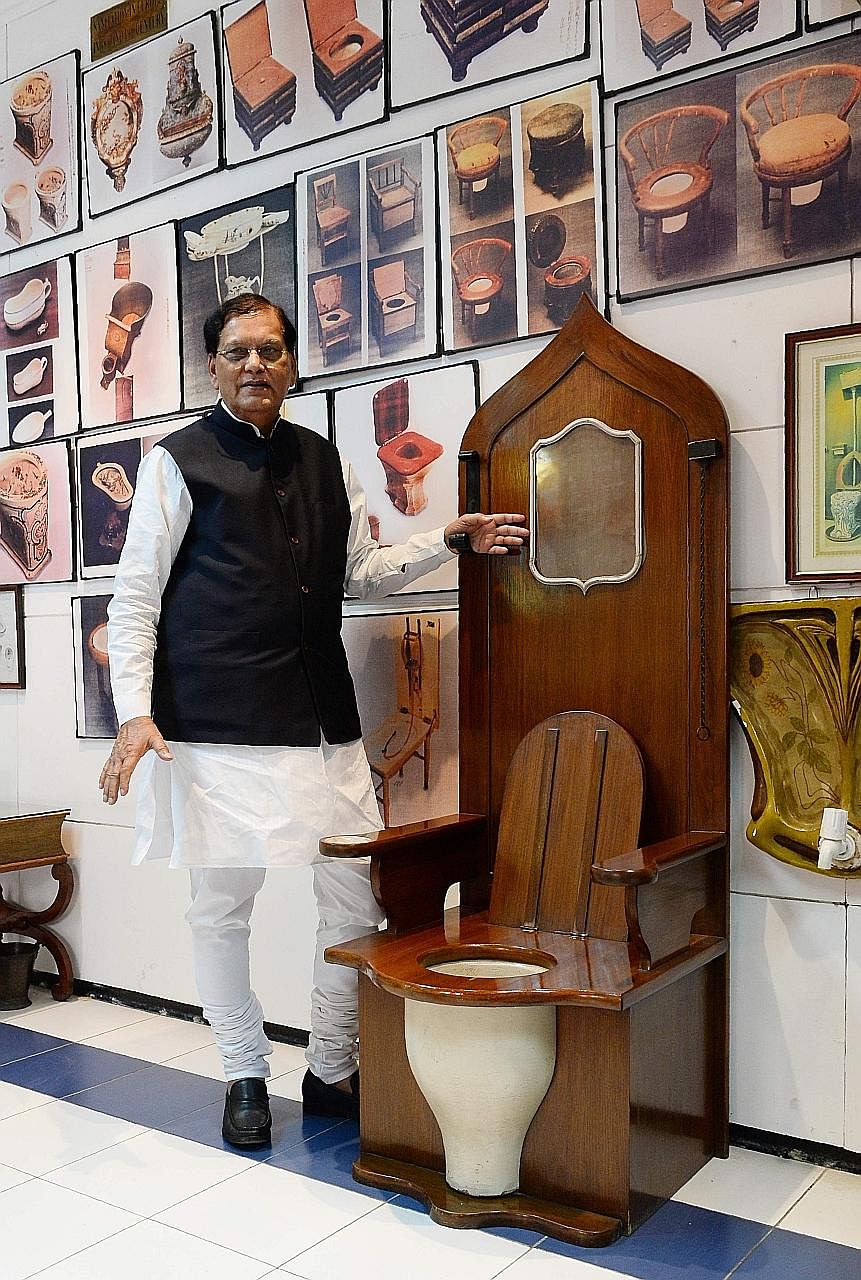NEW DELHI • A throne with a built-in commode for a French monarch takes pride of place at a New Delhi museum trying to break taboos surrounding toilets in a country where such convenience remains a sensitive issue.
The replica of the wooden throne used by King Louis XIV is among a treasure trove at the Sulabh International Museum of Toilets, tucked away in a bustling suburb of the Indian capital.
The French king is believed to have struggled with constipation and held audiences while defecating to save time, say the museum curators.
The collection also features a cushioned loo used in European gambling clubs that helped members keep an eye on table stakes without having to take a break.
Scores of curious visitors stop by daily to see the centuries-old commodes, chamber pots and bidets as well as a 21st century machine that turns human waste into ash in seconds.
More were expected for yesterday's United Nations World Toilet Day, which has events around the globe.
"It is quite an unusual museum and I believe it's the only one of its kind in the world," Mr Bindeshwar Pathak, founder of the museum and the non-profit Sulabh International, told Agence France-Presse.
"The idea was to start a healthy conversation about sanitation and toilets. We wanted to tell people toilet is not a dirty word," he said, playing with a small black ball made from dried human waste mixed with glue.

Mr Pathak said the museum has gained traction since being named among the world's top 10 wacky museums by Time magazine in 2014.
"Hundreds of visitors come now on the weekends," said the 74-year-old, affectionately known as India's "Toilet Guru".
The walls of the museum are plastered with toilet room jokes as well as Victorian-era pictures of "basket women" in Europe carrying night soil - fertiliser made from human faeces.
Toilets are a touchy issue in India, where about 600 million people - nearly half of the population - defecate in the open, according to Unicef.
Some 70 per cent of Indian households do not have a toilet - even as 90 per cent have access to mobile phones. More than half the world population do not have a home toilet.
Experts say open defecation in India stems from poverty and a belief that toilets inside the home are unclean. So people prefer to squat in the open.
Three years ago, Prime Minister Narendra Modi launched a massive cleanliness drive, pledging to build toilets for all by 2019.
So far, the government has helped install over 50 million toilets across the country of 1.3 billion people.
AGENCE FRANCE-PRESSE
